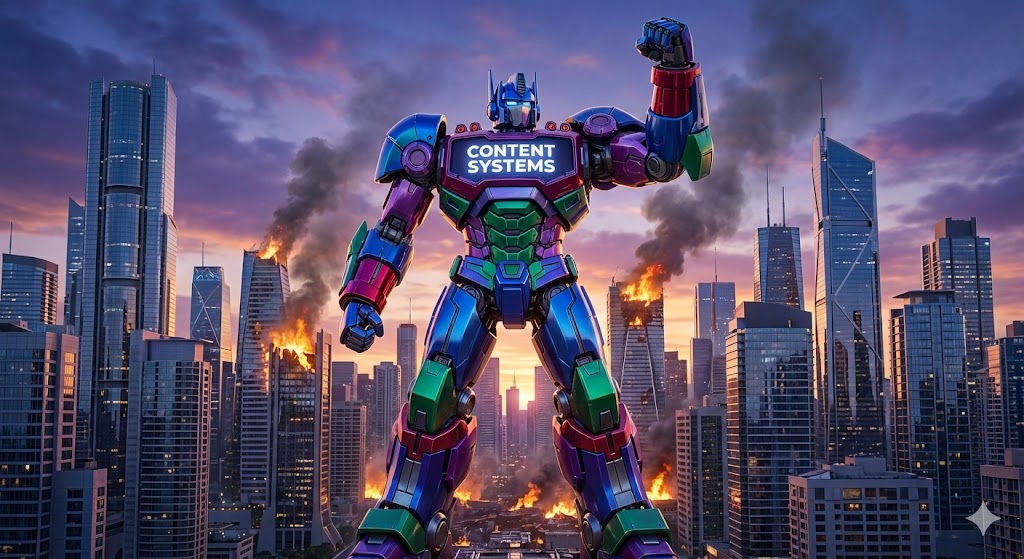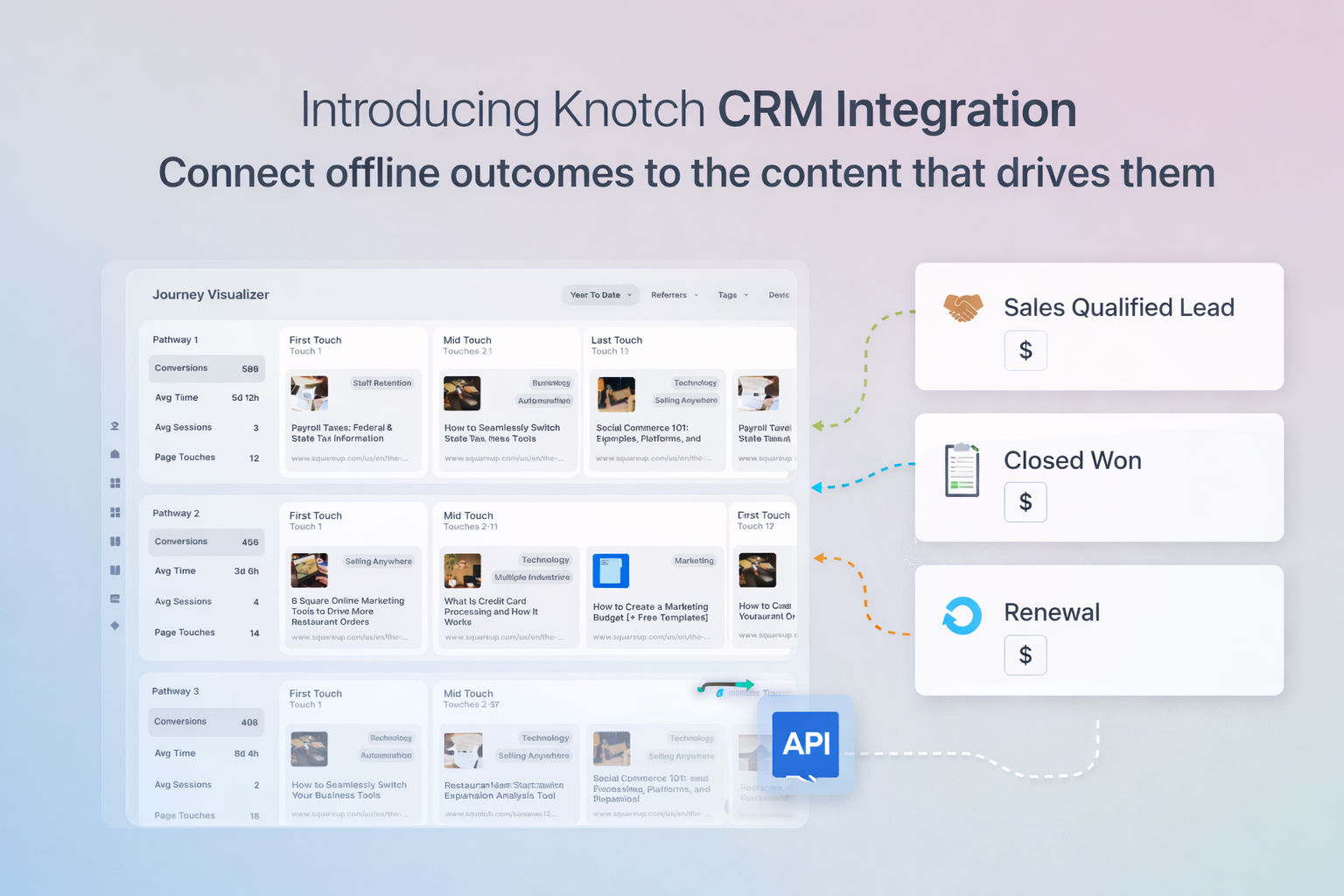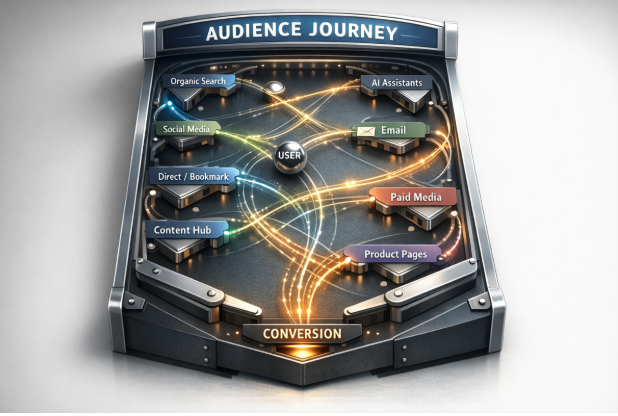
AI Use Cases for Marketers: The Good, The Bad, and The Ugly Workshop - Key Takeaways

AI is revolutionizing marketing, but it’s not a magic bullet.
At Knotch’s recent workshop, industry experts Robert Rose (7th Bear, Content Marketing Institute, author of Content Marketing Strategy) and Joe Lazer (A.Team, author of The Storytelling Edge book and newsletter) shared their insights on AI’s role in marketing. From content creation to audience understanding, here are the key takeaways from our discussion:
1. AI in Content Creation: A Powerful Tool, But Not a Replacement
AI is widely used for content generation, but there’s still skepticism around its reliability and quality. Robert Rose described the current state of AI adoption in marketing teams as “a tale of two cities.” While some teams experiment heavily, others remain cautious.
“AI doesn’t create average content—it creates the most probable content. That means sometimes it’s insightful and valuable, and sometimes it’s total crap.” — Robert Rose
AI can enhance content creation, but it works best as an assistant to skilled marketers, not a replacement for them.
2. Personalization and AI: A Solution to the “Sea of Sameness”
Many brands struggle to stand out in an ocean of generic content. However, some marketers are using AI to personalize content at scale. This involves adapting core assets for different audiences without losing authenticity.
“We’re seeing marketers respond to the sea of sameness by iterating content for multiple audiences and feeding it into personalization engines.” — David Brown (Knotch)
By leveraging AI to fine-tune messaging for different customer segments, brands can maintain relevance without compromising quality.
3. AI Can Enhance Audience Understanding—If Used Thoughtfully
One of AI’s most promising applications is improving audience research and segmentation. Instead of relying solely on sales teams to interpret customer needs, AI can extract insights directly from customer interactions.
“We had a client who did 600 customer interviews. AI helped analyze all of that data to extract key insights in minutes—something that would have taken human teams weeks.” — Robert Rose
That said, AI isn’t infallible. While it can detect patterns, marketers must still validate its conclusions to avoid missing unexpected but valuable insights.
4. AI’s Role in Workflow Efficiency: Eliminating Bottlenecks
Marketing teams often spend more time managing approvals and legal reviews than actually creating content. AI is beginning to streamline these processes, making content production faster and more efficient.
“If you can automate legal review so lawyers don’t have to redline every piece of content, that’s a game-changer.” — Joe Lazer
That doesn’t mean eliminating human oversight—but AI can reduce tedious back-and-forths and free up teams to focus on more strategic work.
5. The Future of AI in Marketing: Doing More, Not Just Doing It Faster
Many companies view AI as a way to produce the same work with fewer people. That’s the wrong mindset. Instead, AI should be seen as an opportunity to expand what’s possible.
“The most valuable AI use cases aren’t about doing the same things faster. They’re about doing new things we’ve never been able to do before.” — Robert Rose
Rather than just automating existing workflows, companies should think about how AI can help them create innovative experiences and tell better stories.
6. The Crying Need for AI Training and Workflow Development
AI has enormous potential, but many marketing teams lack structured training and best practices for using it effectively. Without guidance, AI tools are often used to generate generic, uninspired content rather than unlocking creativity and productivity.
“There hasn't really been a lot of training or guidance around how to use Generative AI and what a good workflow should look like. If we're just creating the same generic, mediocre SEO slop that B2B brands have been producing for the last decade, then we're not using these tools to actually move the needle in any meaningful way.” — Joe Lazer
To truly benefit from AI, marketers must develop structured workflows, train their teams on best practices, and focus on using AI to enhance—rather than replace—human creativity.
Recommended Resources for Learning More
To stay ahead of the curve, the panelists recommended several valuable resources for deepening AI knowledge:
- Marketing AI Institute Podcast – Hosted by Paul Roetzer, this podcast explores AI’s impact on marketing and business.
- Ethan Mollick’s Work – A professor at Penn, Mollick provides deep insights into AI’s role in business and education. His book Co-Intelligence is a must-read.
- Gary Marcus’s Research – A more skeptical view of AI’s capabilities, Marcus offers important counterpoints to the AI hype.
- 404 Media – An excellent source for critical AI reporting and industry developments.
- Amanda Natividad and Rand Fishkin’s Work – Experts in SEO and marketing, they provide strategies for adapting to the new AI-driven search landscape.
- Kevin Indig’s Growth Memo excels at breaking down complex growth and SEO strategies into insightful, data-driven analyses.
These resources offer a mix of optimism, practicality, and caution—helping marketers navigate AI’s evolving role in their strategies.
The Next Step for Marketers
The conversation around AI in marketing is still evolving, but one thing is clear: AI’s greatest potential lies in its ability to enhance human creativity, not replace it. As Joe Lazauskas put it:
“Leaders need to stop thinking, ‘Now we can do the same mediocre BS with fewer people,’ and start asking, ‘What incredible new things can we create?’”
The challenge for marketers isn’t whether to use AI—it’s how to use it wisely. The brands that succeed will be those that blend human ingenuity with AI’s power to create content that truly resonates.
Are you ready to rethink your AI strategy? Let’s move beyond automation and start innovating.
Published February 17, 2025
Become a thought leader
Become a thought leader
Trusted by the largest (and now smartest) brands in the world.
“Before Knotch we did not understand what content was driving business results. Now we understand which content moves the needle. Knotch’s cohesive reporting and insights paint a real picture of what’s happening on our website instead of the patchwork quilt that comes from a Google Analytics approach. With Knotch we have been able to re-prioritize ad spend, route better leads to our SDR team, and inform our content development initiatives.”

"The Knotch platform ensures that we deliver high-performing content tailored to young home shoppers, enhancing their experience and driving better business outcomes.”

"Our partnership with Knotch has been highly successful, empowering us to leverage data-driven insights and refine our content strategy.”




.png)




